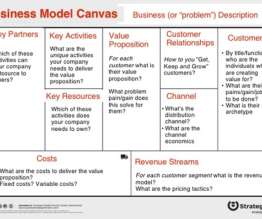Startup Funding – A Comprehensive Guide for Entrepreneurs
ReadWriteStart
JUNE 1, 2020
The primary source of your funds should be your paying customers, i.e., your business should generate enough revenues and profits to fund the growth and expansion. Reasons for funding. ? Scale up your operations. Now you may want to scale up your operations or expand your presence. Seed stage. Crowdfunding.



















Let's personalize your content